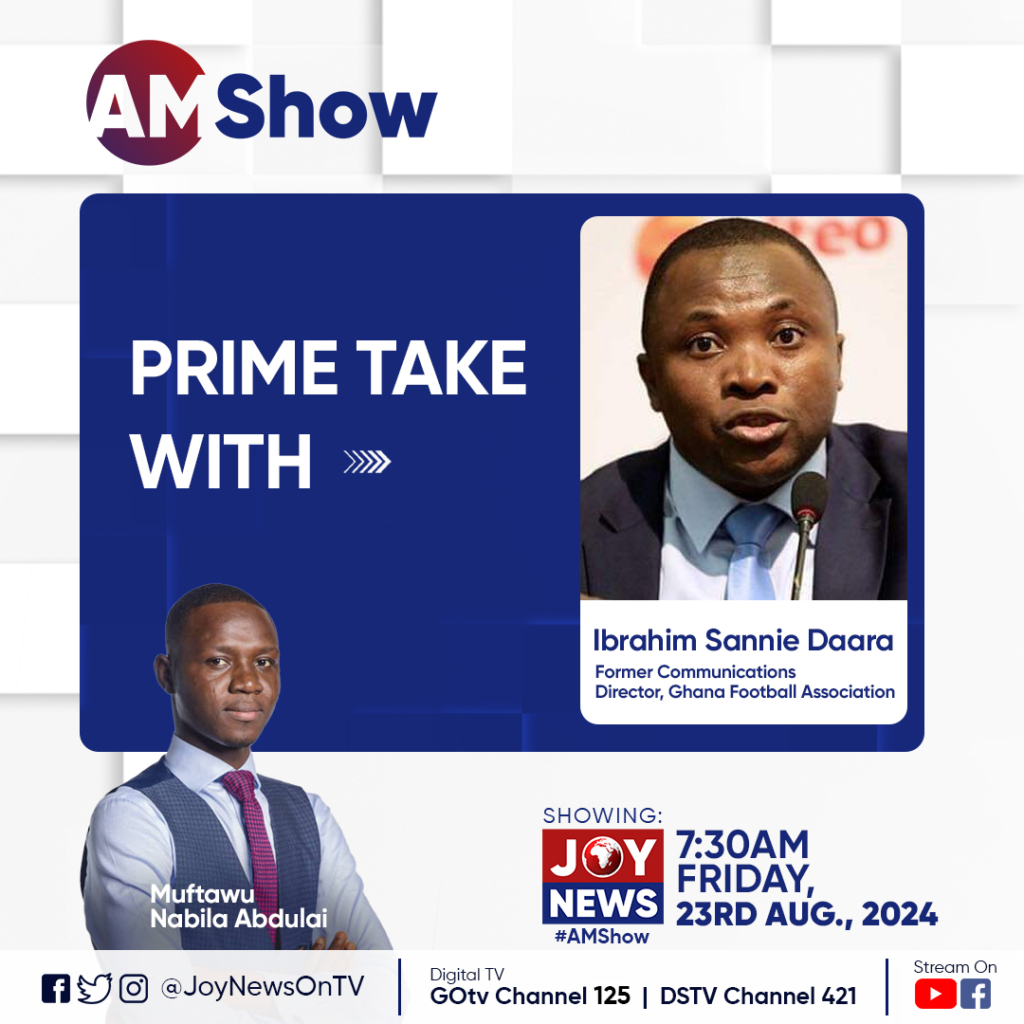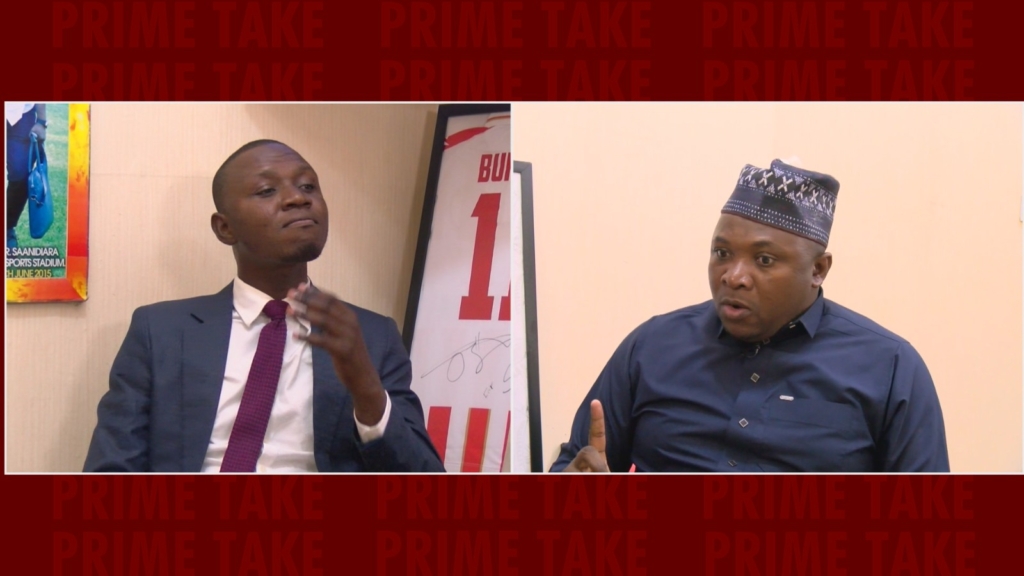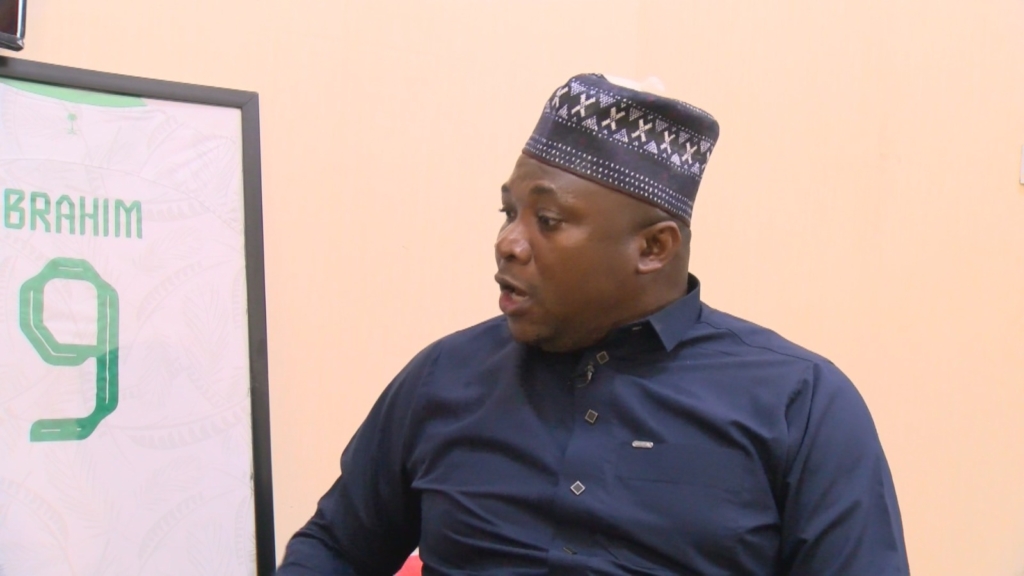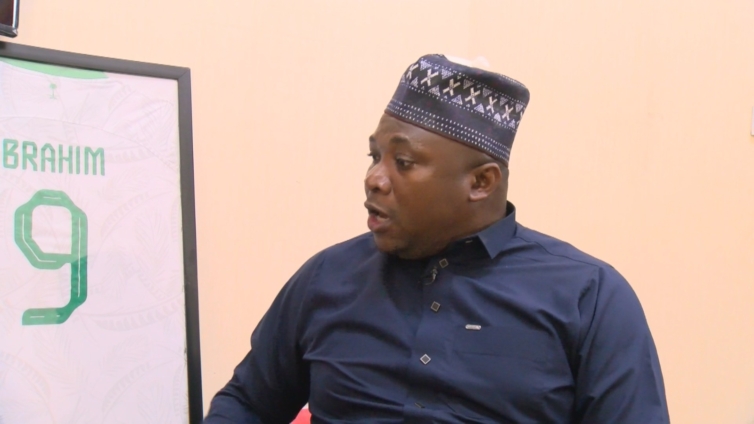A former Communications Director of the Ghana Football Association (GFA), Ibrahim Sannie Daara, has issued a warning to the government, urging immediate support for Ghanaian football clubs to prevent the collapse of the domestic leagues in the country.
Speaking on 'Prime Take' with Muftawu Nabila Abdulai, Sannie emphasised the critical role of government intervention in sustaining the sport at the national level.

“When a footballer sees that there's no life beyond the football he's playing after 35 years, they don't earn so much. Most of the teams, all the teams in Ghana today, are owned by individuals,” he noted.
"It is individuals who are funding and paying for the kids of people, or Ghanaian youth, to become who they are.
"The state must support them. It must not be a one-man effort," he admonished.
Hitherto, Ghanaian footballers and other athletes were employed by state companies.
The former BBC broadcaster reminisced about a time when the state played a pivotal role in supporting athletes.

"In the past, when someone was playing in the domestic league, he was employed by the police or the army," he recalled.
“Ali Jarrah, for instance, was employed by the Fire Service. So was Sam Johnson. And a lot of them were employed by the Bank of Ghana.
"All of these state agencies had some way, somehow, something to do with sports recruitment when they recruited every year."
He argued that the return of such initiatives would provide players with financial security and career longevity.

“These are some of the things that we must go back to. Otherwise, we have no fighting choice. They have to because they are state institutions,” he urged.
Sannie also proposed that the government not only change its strategy but also develop a comprehensive plan to integrate sportspeople into state institutions.
“They recruit sportspeople. Part of the sportspeople must be footballers, athletes, or boxers, so that the player knows that, one, they'll get a salary from, say, if they're playing and working with the police, they'll get their salary from the police.
"They'll get a salary added on to, maybe, from Hearts or Kotoko. Then, finally, when they retire from football, they'll also have a full-time job to fall back on and a pension," he explained.
By ensuring that players receive dual incomes—one from their football clubs and another from state employment—along with future job security and pensions, Sannie Daara believes that the domestic leagues can be revitalised.
He warned, however, that failure to act would spell the demise of local football.
“Otherwise, our domestic leagues will die, and it will be on their heads,” he concluded.
In this interview, which will air on JoyNews on Friday at 7:30 am, Saturday at 7:30 pm, and Sunday at 11 am, he talks about early life, family, professional life, exiting the FA, and working at CAF.
Latest Stories
-
Queenmother calls on President-elect Mahama to appoint more women in his government
34 minutes -
Atletico Madrid beat Barcelona to go top of La Liga
52 minutes -
Usyk breaks Fury’s heart with points win in rematch
55 minutes -
Ghana-Russia Centre to run Russian language courses in Ghana
6 hours -
The Hidden Costs of Hunger: How food insecurity undermines mental and physical health in the U.S.
7 hours -
18plus4NDC marks 3rd anniversary with victory celebration in Accra
10 hours -
CREMA workshop highlights collaborative efforts to sustain Akata Lagoon
10 hours -
2024/25 Ghana League: Heart of Lions remain top with win over Basake Holy Stars
11 hours -
Black Queens: Nora Hauptle shares cryptic WAFCON preparation message amid future uncertainty
11 hours -
Re-declaration of parliamentary results affront to our democracy – Joyce Bawah
11 hours -
GPL 2024/25: Vision FC score late to deny Young Apostles third home win
12 hours -
Enhancing community initiatives for coastal resilience: Insights from Keta Lagoon Complex Ramsar Site Workshop
12 hours -
Family Health University College earns a Presidential Charter
12 hours -
GPL 2024/25: Bibiani GoldStars beat Nsoatreman to keep title race alive
12 hours -
GPL 2024/25 Bechem United keep title hopes alive with narrow win over FC Samartex
12 hours

